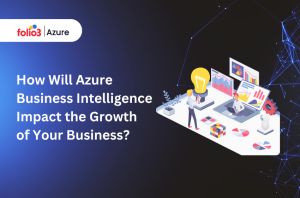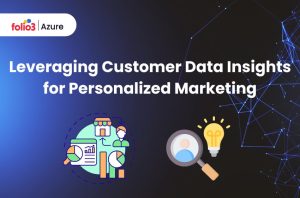Table of Contents
ToggleWorldwide, health care is recognized as a fundamental human right and necessary to protect populations’ health and safety. Thus, providing health services is vital for society and the economy.
The healthcare field is advancing at an exponential rate. Therefore, being proactive and ahead of new trends is crucial for your organization’s success in the healthcare industry. Recognizing and adapting to these patterns may immensely influence business growth, efficiency, and patient care.
Here, we will discuss the most recent developments in the healthcare sector and how the latest technologies, like cloud computing and data analytics, are changing the field. By acquiring healthcare business insights, you can better manage the changing environment and set up your company for future success.
Real-time data Access and insights are crucial in the advancing medical field. These insights enable you to predict changes, adapt strategies, and ensure that your services meet the market’s growing and changing demands. Explore data analysis and insights to stay ahead of healthcare trends.
Current Healthcare Trends
The healthcare sector changes continuously due to rising patient expectations and technological advancements. The following are a few of the key developments impacting healthcare today:
1. Increased Adoption of Telemedicine and Remote Patient Monitoring
Telemedicine, the remote diagnosis and treatment of patients, has become a foundation of modern healthcare. It offers patients the convenience of virtual consultations and remote monitoring. This trend has gained worldwide popularity with the advent of the COVID-19 pandemic. Telemedicine made healthcare more accessible and reduced the need for patients to visit physically.
Telemedicine platforms enable the continuous monitoring of chronic conditions, leading to better patient management and treatment. For example, wearable devices can track vital signs in real time and send data directly to healthcare providers, enabling timely interventions.
2. Emphasis on Personalized Medicine and Patient-Centered Care
Personalized medicine creates custom treatment plans for each patient, considering their lifestyle, environmental, and genetic factors. This method promotes a more patient-centered healthcare system by increasing the effectiveness of treatment and improving patient results. Doctors may create more accurate and efficient care plans using genetic data to predict patients’ responses to specific therapies. For example, cancer therapies may be adjusted to a tumor’s genetic composition, leading to an impressive rise in survival rates.
3. Growth of Data Analytics and Artificial Intelligence in Healthcare
Fei-Fei Li says, “The day healthcare can fully embrace AI is the day we have a revolution in terms of cutting costs and improving care.”
Data analytics and AI are transforming healthcare by empowering doctors with predictive analytics, improving decision-making, and enhancing operational efficiency.
These technologies help healthcare providers evaluate massive data to spot trends, predict outcomes, and personalize patient care.
Artificial intelligence can help diagnose illnesses by analyzing medical imaging and monitoring vital signs. Moreover, data analytics may save expenses, improve resource allocation, and organize hospital operations.
4. Regulatory Changes and Compliance Requirements
Healthcare organizations have a complex network of regulations to follow and responsibilities to fulfill. It’s important to stay updated on these rules to guarantee patient safety, data security, and legal compliance. Laws such as the Health Insurance Portability and Accountability Act (HIPAA) in the US establish standards for protecting patient information. By guaranteeing patient data is handled securely, following these rules helps avoid legal repercussions and builds patient trust.
Role of Cloud Services in Healthcare
Cloud computing revamps healthcare systems by providing scalable, budget-friendly, and secure solutions. Here’s how cloud services are changing the healthcare industry worldwide:
Cloud Computing in Healthcare
Cloud computing is all about providing computing services, such as storage, processing, and analytics, over the Internet. In the healthcare sector, cloud services facilitate the secure storage and sharing of patient data, thus enhancing collaboration and ease of access to information. Cloud computing enables the integration of different health IT systems, facilitating a more coordinated approach to patient care.
Benefits of Cloud Services for Healthcare Organizations:
- Scalability and Flexibility: Cloud services provide medical organizations with the flexibility to grow their IT infrastructure according to demand. This enables them to manage a range of workloads easily, which is very helpful during public health emergencies when there may be a sudden increase in demand for healthcare services.
- Cost Efficiency: By using cloud services, medical organizations can reduce their infrastructure costs and only pay for the resources they use. This pay-as-you-go model allows for better financial management and allocation of funds to patient care and other important areas.
- Enhanced Data Security and Compliance: Cloud providers provide strong security protocols and compliance certifications to guarantee patient data protection and compliance with regulations. Cloud platforms use advanced encryption algorithms to access controls and conduct frequent security audits to protect sensitive patient data.
- Improved Collaboration and Interoperability: Cloud services enable easy data sharing and collaboration between healthcare providers. This data sharing improves patient care and coordination. For instance, a patient’s medical history can be accessed by multiple specialists at different locations, ensuring a comprehensive approach to treatment.
Explore Azure cloud services for more details on Cloud Computing in Healthcare.
Key Cloud Services Transforming Healthcare
Several cloud services are driving innovation in healthcare, each offering unique benefits:
1. Electronic Health Records (EHRs)
- Cloud-Based EHR Systems: Cloud-based EHR systems provide real-time data access to patient records, facilitating data integration and increasing patient engagement. These systems boost the accuracy and ensure constant availability of patient information, leading to improved medical decisions. Cloud-based EHRs also facilitate data access from mobile devices, enabling healthcare providers to update and retrieve patient data from anywhere.
- Benefits: Cloud-based EHR systems offer major benefits such as patient involvement, data integration, and real-time access. These advantages increase patient satisfaction, improve coordination between medical staff, and reduce mistakes.
2. Telehealth Platforms
- Cloud-Based Telemedicine Solutions: Cloud-based telehealth platforms provide accessibility, convenience, and continuous patient care and monitoring. Patients can easily connect with healthcare providers from their homes, ensuring timely medical consultations and interventions. Telehealth eliminates geographical barriers, making accessing specialist care easier for patients in remote areas.
- Benefits: Accessibility, convenience, and continuity of care are key features of this model, which is particularly beneficial for managing chronic diseases, providing mental health services, and conducting follow-up visits.
3. Data Analytics and Business Intelligence
- Cloud-Based Analytics Platforms: Cloud-based analytics platforms empower healthcare systems to use predictive analytics and business intelligence. These tools help make decisions based on the latest data, improve operations, and improve patient treatment. For example, predictive analytics can identify patients at high risk of readmission, allowing preventive measures to be taken proactively.
- Benefits: Predictive analytics, improved decision-making, and operational efficiency. Healthcare professionals can find details and trends that guide clinical and operational actions by analyzing massive datasets.
4. Patient Portals and Mobile Health Apps
- Cloud-Hosted Patient Engagement Tools: Patients can access their health information quickly and communicate with their healthcare providers via Patient portals and mobile health apps hosted on the cloud. These technologies lead to better treatment results and patient satisfaction. Patients can schedule appointments, request prescription refills, and view test results through these platforms.
- Benefits: Patient empowerment, better communication, and health outcomes. Patients who are more informed and engaged are more likely to stick to treatment plans and make better health decisions.
5. Healthcare Information Exchanges (HIEs)
- Cloud-Based HIE Solutions: Cloud-based HIE solutions provide easy data sharing among healthcare providers. This improves coordination among patients and doctors and ensures that patients get complete and timely care. HIEs also help avoid the repetition of tests and procedures, thus decreasing healthcare costs.
- Benefits: Easy data exchange, interoperability, and coordination in patient care. Effective HIEs make sure that critical patient information is available at the point of care, boosting the overall quality and efficiency of healthcare.
The Future of Healthcare with Cloud Services
As we step into the future, where technological advancements multiply every day, we can foresee that cloud services integration in healthcare will continue to expand. New technologies like the Internet of Things (IoT), blockchain, and advanced machine learning algorithms will further integrate with cloud platforms, providing even more powerful tools for the healthcare sector. IoT devices can continuously monitor patient health parameters, while blockchain offers enhanced security for patient data transactions.
1. The Internet of Things (IoT) in Healthcare
IoT devices are transforming data collection and patient monitoring. These devices constantly record patients’ heart rates, blood pressure, and glucose levels and send the data to cloud-based systems for analysis.
Due to this real-time data access, healthcare professionals can remotely monitor patients, detect concerns early, and take immediate action, enhancing patient outcomes and lowering hospital readmission rates.
2. Blockchain Technology in Healthcare
Blockchain provides a secure and transparent method for handling patient data transactions. Using blockchain, healthcare systems can ensure that patient data is tamper-proof and only accessible to authorized personnel. This technology can also simplify administrative processes such as billing and claims management, reducing fraud and errors.
3. Advanced Machine Learning Algorithms
Cloud Services Integration with machine learning algorithms can analyze huge amounts of health data to identify patterns and predict outcomes. These algorithms can aid in diagnosing diseases, creating personalized treatment plans, and even predicting patient condition worsening before they happen. As these technologies advance, they will become even more critical for healthcare operations.
Conclusion
Surviving in today’s healthcare environment demands understanding healthcare trends and applying key business information. By adopting cloud computing, data analytics, and other transformational technologies, healthcare organizations may improve patient care, increase operational efficiency, and comply with regulations. Recognizing and adjusting to these patterns will position your organization for long-term success.
Discover more about Azure cloud services and how they can boost your healthcare organization with their expertise. If you have any questions or need assistance, contact us.
By understanding these key trends and technologies, healthcare organizations can improve patient outcomes, achieve excellence in their operations, and maintain financial stability. Stay informed, stay flexible, and use the power of cloud computing and data analytics to thrive in the competitive healthcare sector!


